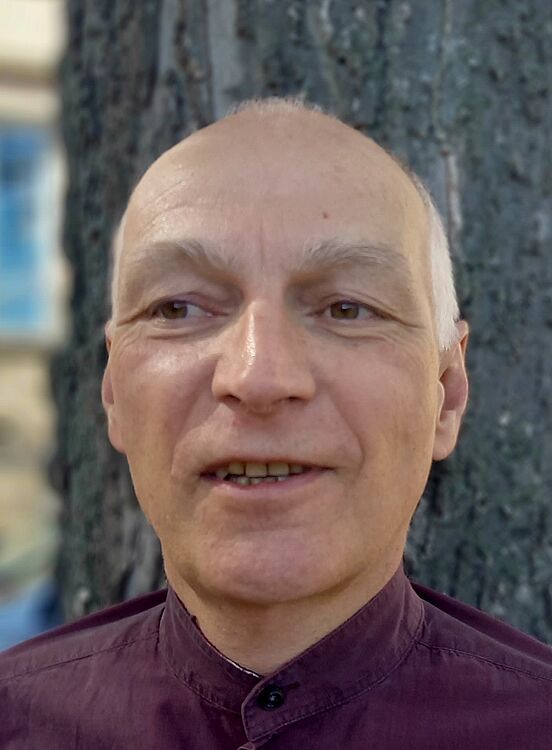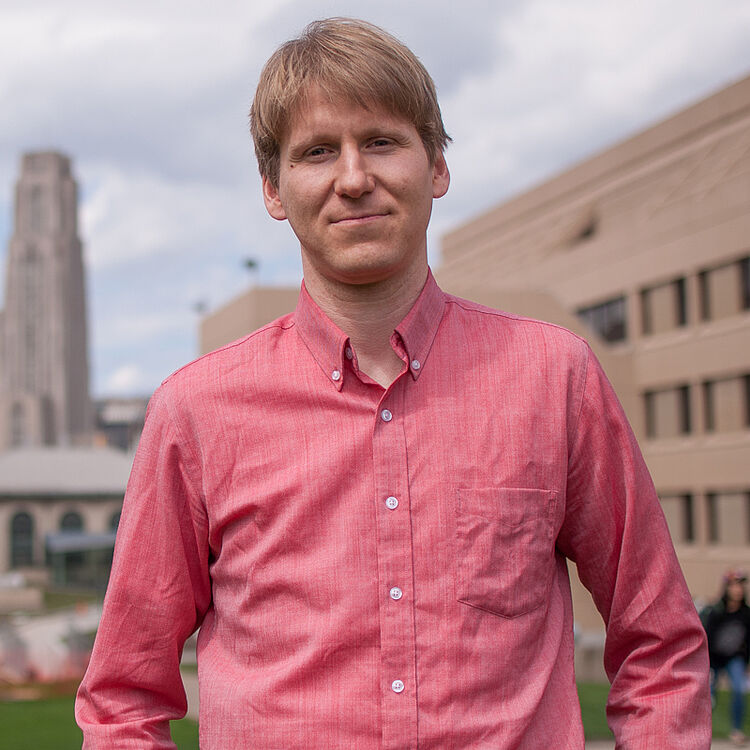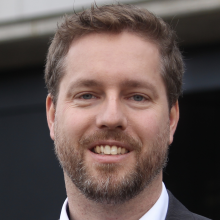Distinguished Lecture
The lecture series “Distinguished Lectures” of the Institute of Computer Science consists of high-quality lectures and discussions with national and international personalities, which are intended to inspire research at our institute and promote the exchange of knowledge between scientists. The event is open to all interested parties. Separate registration for participation is not required.
17.06.2025, 3 p.m. , Foyer F0.110
Jérôme Euzenat
Cultural knowledge evolution in artificial agent societies

Jérôme Euzenat
Jérôme Euzenat is senior research scientist at INRIA, Rhône-Alpes, Grenoble, France. He studied computer science at Université Paris Cité, passed his doctorate in informatics from the Joseph Fourier University of Grenoble in 1990 about reasoning maintenance systems, and hold the habilitation also from the Joseph Fourier University of Grenoble in 1999. Moreover, he have worked as an engineer for Cognitech (now EDS-ingévision 1988-1989), Bull-Cediag (1989-1991) and Ilog (1992) and joined INRIA Rhône-Alpes in 1992. He has contributed to reasoning maintenance systems, object-based knowledge representation, symbolic temporal granularity, collaborative knowledge base construction, multimedia document adaptation, belief revision and semantic web technologies. His all time interests are tied to the relationships holding between various representations of the same situation. Dr Euzenat has set up and leads the INRIA Exmo team devoted to "Computer-mediated communication of structured knowledge''. He played a leading role in the definition and development of the ontology matching field.
Cultural knowledge evolution in artificial agent societies
Abstract:
Cultural evolution is the application of evolution principles (variation, transmission, selection) to culture, e.g. customs, norms, languages, laws, religions, sciences.
It is considered as a key factor in the evolution of the human species.
Agent-based simulation of cultural evolution has been performed for long.
It has been successfully and convincingly applied to the evolution of natural languages.
We apply it to knowledge and beliefs.
Nowadays, the topics is renewed by the perspective of the deployment of artificial systems in our societies.
In order to be accepted, these systems should be able to adapt and behave along a culture shared within such societies.
Providing them with cultural evolution capabilities would contribute to their acceptance.
This is not any more cultural evolution simulation, but artificial cultural evolution, like there is artificial intelligence.
Knowing the principles by which societies can evolve their knowledge and beliefs should contribute to this.
Within this talk I will present the results of cultural ontology evolution within agents and how it allow them t succeed in their tasks, to improve their knowledge and to preserve its diversity.
I will also discuss theoretical approaches that could cover cultural knowledge evolution.
Programme
| Tuesday, 17.06.2025, Foyer F0.010 | |
| 15:00 | Welcome by Department Chair Prof Dr Eric Bodden |
| 15:20 | Lecture by Jérôme Euzenat |
| 17:00 | Get together with catering in room “Freiraum” |
| Wednesday, 18.06.2025 | |
| 9:00 bis 16:00 | Personal communications with research group leaders |
Poster for Distinguished Lecture
Former talks in this series:
7.1.2025

Christian Kästner
Christian Kästner is a professor and the director of the Software Engineering PhD program at the School of Computer Science at Carnegie Mellon University. His research focuses primarily on software analysis and the boundaries of modularity, especially in the context of highly-configurable systems.
This talk is a call for more and better education at the intersection of software engineering and machine learning, as well as for more system-wide research on building software systems with machine-learning components. Christian Kästner will argue that truly a system-wide perspective is needed if we want to have any hope at making meaningful progress in building production systems with machine learning components in terms of safety, usability, fairness, or security.
News Article and Interview
From Models to Systems: On the Role of Software Engineering for Machine Learning
Abstract
Building production systems with machine learning components is challenging and many projects fail when moving into production even when showing initial success with training machine-learned models. Unfortunately data science education focuses narrowly on data analysis, machine-learning algorithms, and model building but rarely engages with how the model may be used as part of a system. Engineering aspects beyond deploying models are often ignored or underappreciated, including requirements engineering, user experience design, planning and testing integration with non-ML components, and planning for evolution, leading to poor outcomes in many real-world projects. Software engineers and data scientists often clash in teams due to different goals, processes, and expectations, finding it hard to effectively coordinate and integrate work. In this talk, I argue for the important roles that software engineers have in machine learning projects that want to move beyond a prototype model. I argue that truly a system-wide perspective is needed if we want to have any hope at making meaningful progress on safety, usability, fairness, or security. I explore the common collaboration problems and discuss strategies to overcome them. This talk is a call for more and better education in this space at the intersection of software engineering and machine learning, as well as for more system-wide research on building software systems with machine-learning components.

